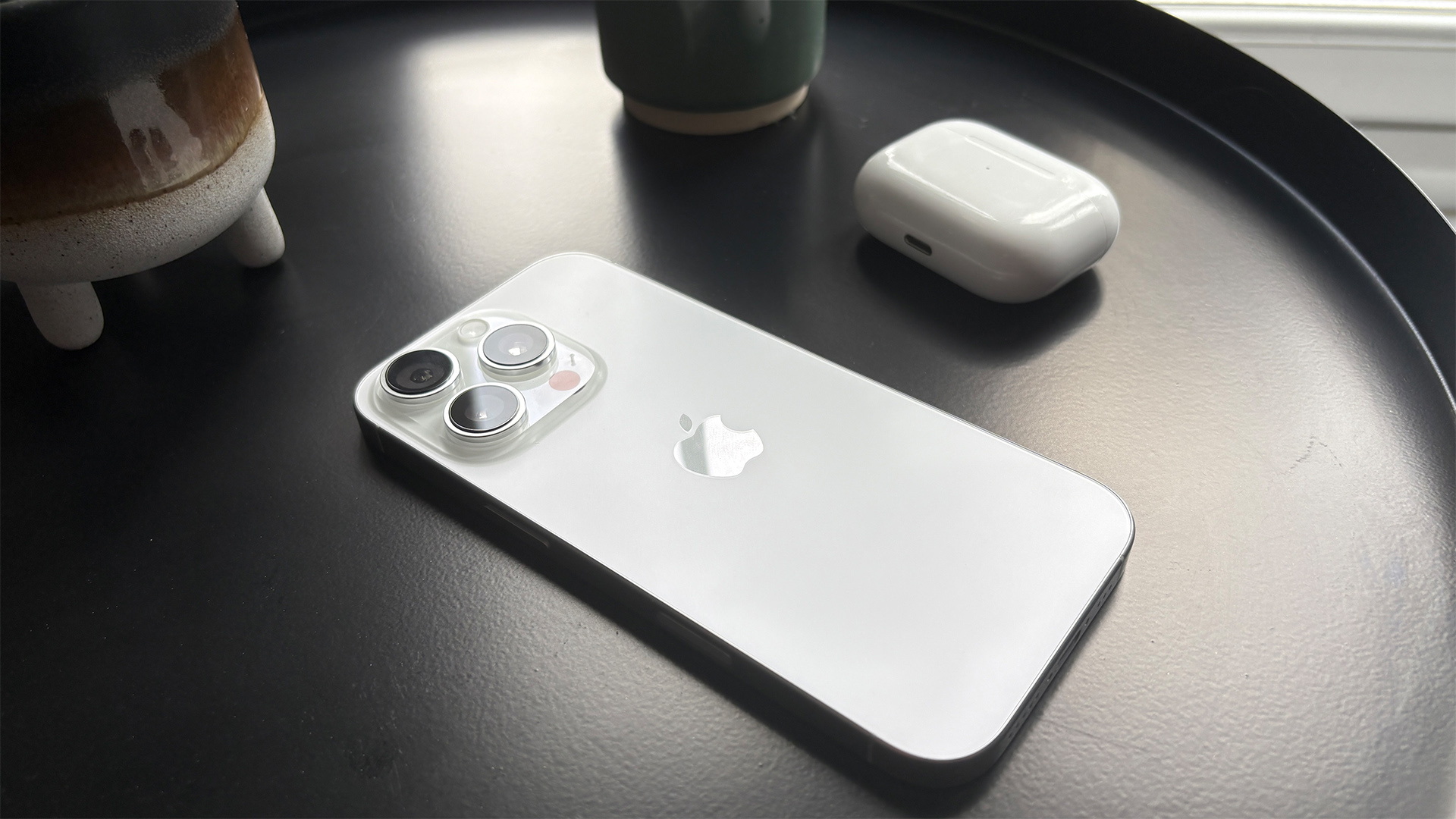PS5 vs PS5 Digital Edition: which should you buy?
We compare the prices, specs and features of Sony's PlayStation 5 consoles
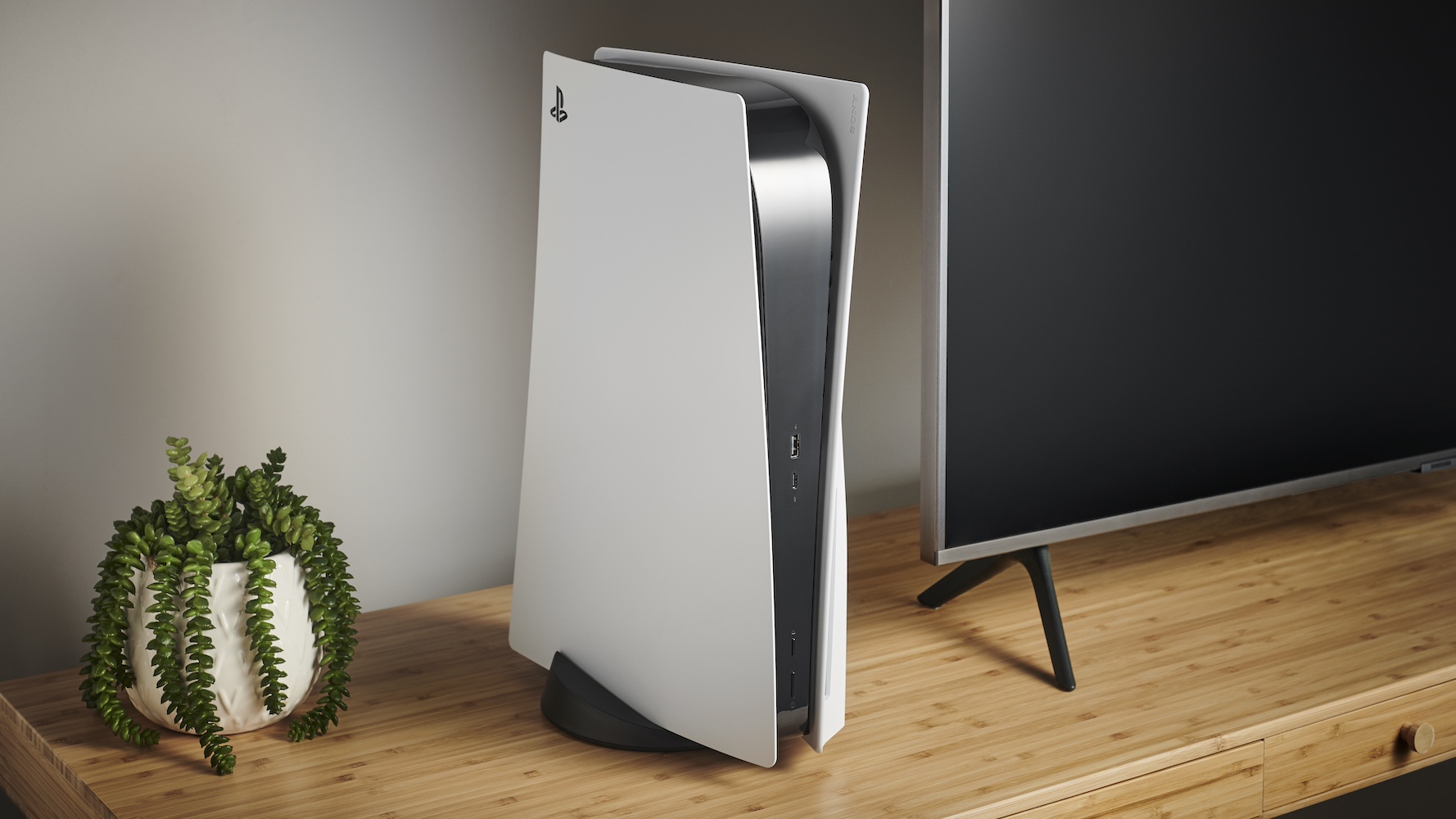
It's been nearly four years since Sony's next-generation gaming console hit shelves, and it's certainly come a long way since then.
The PS5 Slim has succeeded the original model – once stock of the original PS5 is gone, it won't be replaced. While the PS5 Slim follows the original in coming in two models – the standard version with a disc drive, and a Digital Edition that can only stream or download content – it has a rather cool trick. If you opt for the Digital Edition and later decide that actually, you would rather be able to play discs as well, you can add a disc drive as a separate accessory.
Buying the Digital Edition plus separate disc drive can be more expensive than buying the standard model (though only marginally), so it's not as simple a decision as it first seems. Which should you buy? Read on to find out...
- Save big with this week's best PS5 deals
- Considering an Xbox? PS5 Digital Edition vs Xbox Series S
PS5 vs PS5 Digital Edition: price and availability
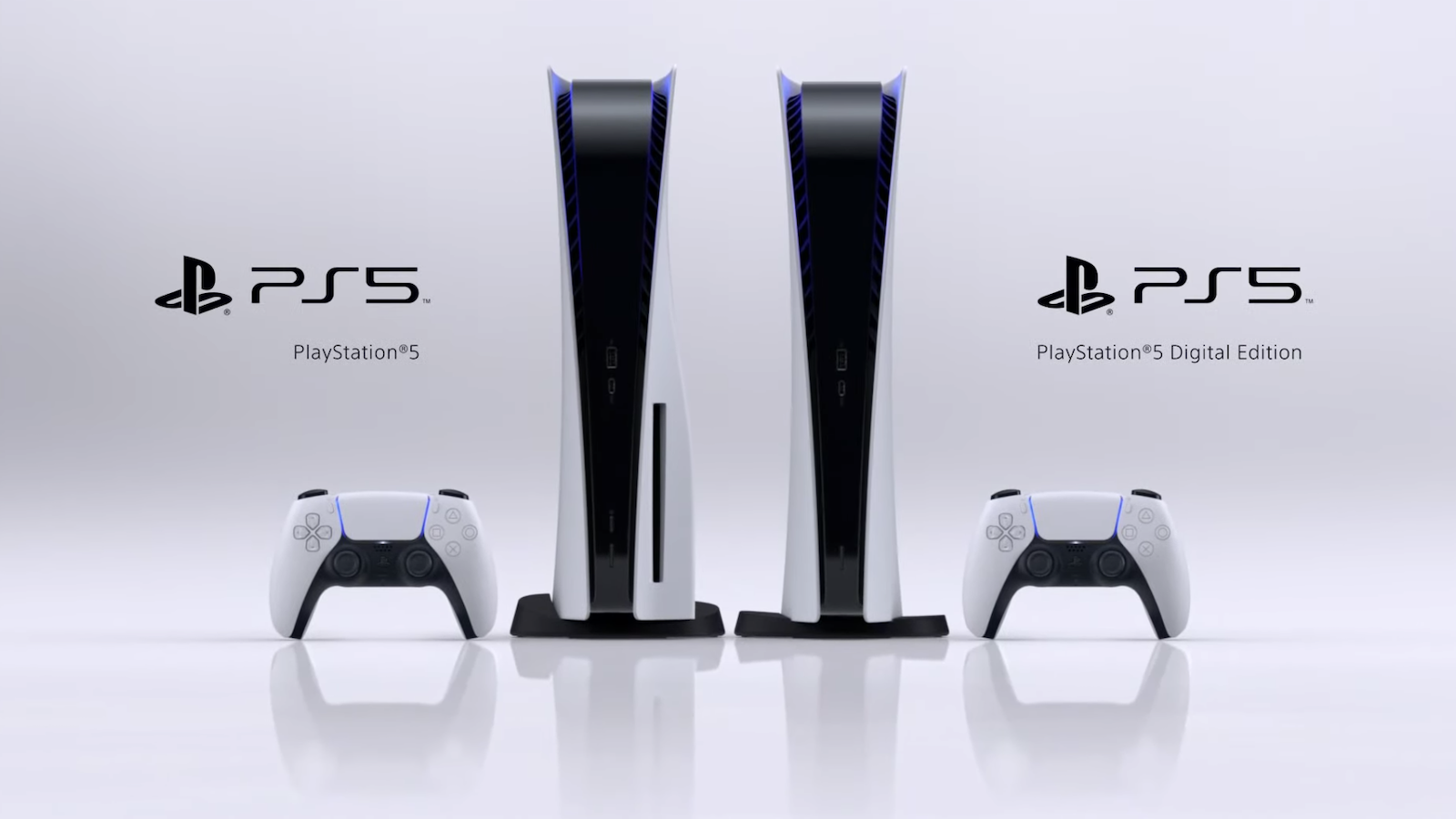
The standard PlayStation 5 debuted at £449 / $499 / AU$749. But in August 2022 Sony announced price hikes in the UK and Australia. The PS5 now goes for £480 / $500 / AU$800.
The disc-less PS5 Digital Edition is the cheaper option here. It started at £359 / $399 / AU$599 but Sony's August 2022 prices rises have nudged that up to £390 / $400 / AU$650.
Pricing the Digital Edition cheaper than the 'full-fat' PS5 mirrors the approach has taken with its Xbox Series X and all-digital Xbox Series S. After all, if you're getting less functionality you should pay less, right?
The PS5 Slim has succeeded both models – in its Disc Edition and Digital Edition iterations – at the same prices. The disc drive add-on costs £100 / $80 / $159. That makes buying the Digital Edition plus disc drive £10 / AU$9 more expensive than buying the Disc Edition in the first place, though in the US it's $20 cheaper. Go figure.
- Feast your eyes on the best gaming TVs
PS5 vs PS5 Digital Edition: design and build
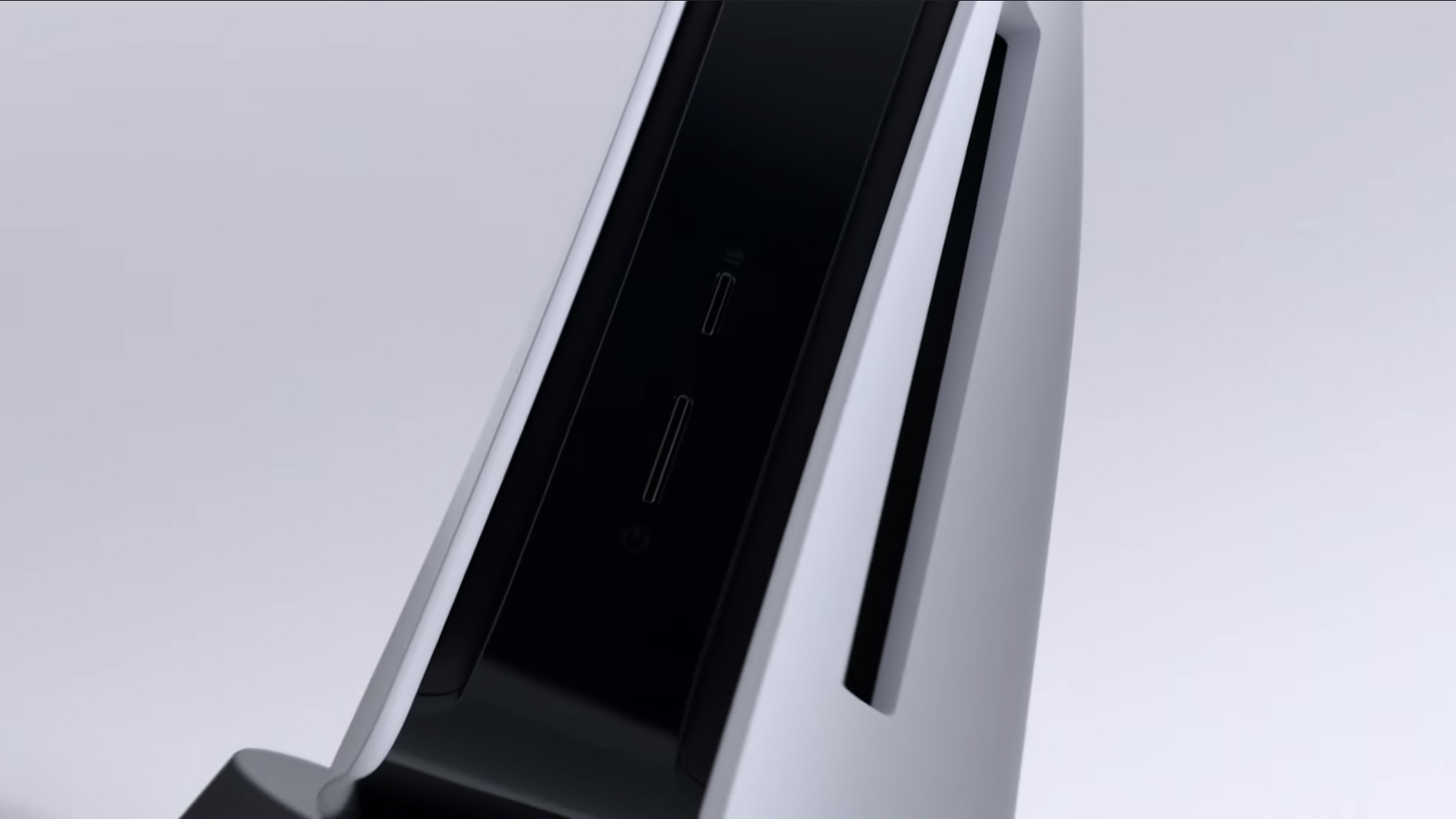
The PS5 is an imposing machine (39 x 26 x 14cm). The main difference between the two models, looks-wise, is that one has a disc drive and one doesn't. Consequently, the Digital Edition is 12mm slimmer towards the base and around half a kilo lighter.
In August 2022, it emerged that Sony had quietly refreshed the design of both PS5 consoles. The updated disc model weighs in at 3.9kg, much lighter than the 4.5kg launch version. This seems to be down to a number of internal changes to the motherboard, as well as the cooling and SSD enclosure. The latest disc-less version now weighs 3.4kg, instead of 3.9kg, while the Digital Edition Slim model tips the scales at just 2.6kg.
Overall, the Slim model is 30 per cent smaller and 24 per cent or 18 per cent lighter, depending if you opt for the version that includes the disc drive.
All versions of PS5 have a sculpted, sci-fi look to them and can be vertically rather than horizontally (you'll have to unscrew and reposition the included pedestal stand, mind). They have the same distinctive design elements too, namely a high, white-collared shell that's separated from the black body of the unit by finned gaps to aid ventilation.
Talking of which, the PS5 is not completely inaudible in a silent room (like the Xbox Series X), but the consistent whirr is quiet enough to be drowned out by any sound coming from your TV or sound system.
In terms of the PS5's disc drive, we'd peg it at about 5dB quieter than the Xbox, so opting for Sony's most expensive next-gen console won't intrude on your movie soundtrack.
The user interface, which includes a new home screen with game ‘cards’, is fresh, super-stylish, logical and snappy. It's also familiar enough to ensure that existing PS4 gamers can quickly find their way about.
All in all, the PS5's is a striking design that has split opinion. But we like it.
PS5 vs PS5 Digital Edition: specs
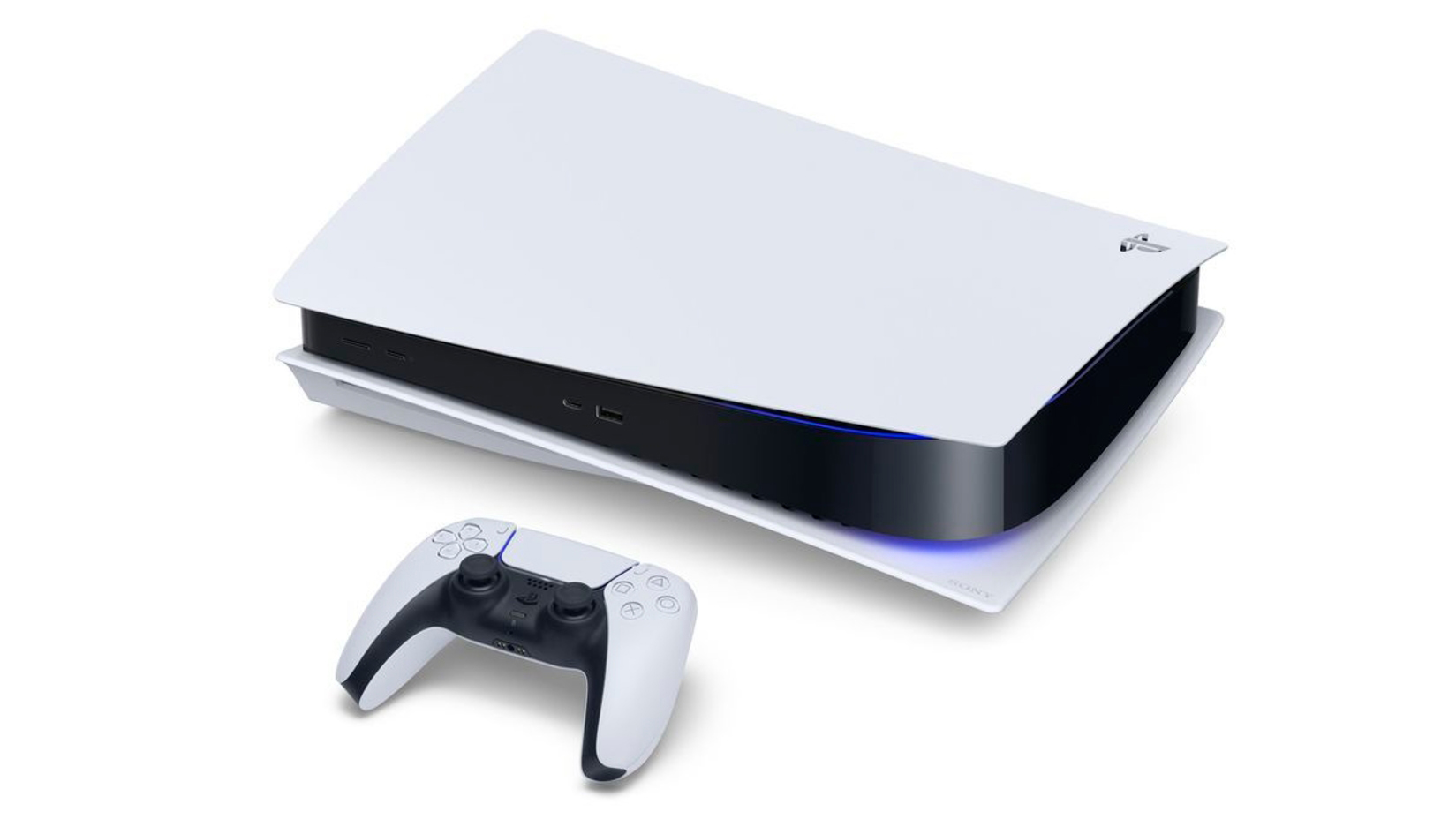
In a post on the official PlayStation blog, PlayStation boss Jim Ryan confirmed that both PS5 consoles share identical power and features, including 4K graphics, ray-tracing support and PS5 3D audio. So, "whichever PS5 you choose, you’ll enjoy the same breathtaking, next-gen gaming experiences".
Spec-wise, both PS5 consoles feature the same AMD Zen 2-based CPU, the same 16GB GDDR6 / 256-bit memory, and the same 825GB SSD. The way Sony has designed and integrated the PS5’s storage makes it so fast (more than twice as fast as that of the Series X) that it boosts overall console performance.
The Slim model gets a slight spec bump – storage is 1TB, while it replaces the front USB-A port with a newer USB-C one, making for two front USB-Cs.
All models of PS5 lack an 8K output option. Instead, silky-smooth 4K at 60Hz is the performance target, with 120Hz available via some games, sometimes at the cost of resolution and/or certain graphical features. In April 2022, Sony boosted the PS5's appeal by adding VRR (variable refresh rate), which reduces screen tearing and smoothes out gameplay.
In July 2022, Sony went further, adding native 1440p support, bringing the PS5 in line with the Xbox Series X and Series S, which have supported 1440p since launch.
In terms of games, you can able to transfer most PS4 games to PS5 and in most cases, enjoy free upgrades such as increased frame rates. However it's worth noting that to do this you'll need to use the PS5's disc drive to transfer the game discs to the next-gen console. The PS5 doesn't support your old PS1, PS2 and PS3 titles, either.
Eyeing up the PS5 as an entertainment hub as well as a games machine? The PS5 and PS5 Digital Edition are a great choice. They now support Netflix, Disney Plus (now with 4K HDR), Apple TV, Spotify, Twitch, BBC iPlayer, YouTube (now with HDR10), Amazon Prime Video, Hulu, Peacock, Disney Plus, HBO Max and PlayStation Video. As per the rumours, Apple Music arrived on the PS5 in October 2021.
One disappointment is the PS5's lack of high-end HDR support. Neither model supports Dolby Vision video, though Dolby Atmos sound arrived in September 2023. Here's how to get the best picture and sound from your PlayStation 5.
On a more positive note, both PS5 and PS5 Digital offer Sony's proprietary 'gold standard' 3D audio technology. The PS5's 3D Audio engine, 'Tempest', produces open, spacious and atmospheric sound with good placement of effects. And although Dolby Atmos isn't an option for games, it is for the PS5 Disc Edition, which can do a very good job of Dolby Atmos soundtracks when given the chance. It doesn’t quite have the crispness of a dedicated player, but it does produce a room-filling sound with good clarity.
The PS5 also supports "Hey PlayStation" voice commands, Sony's latest Party Chat feature, so you can open/close voice chats with friends. Both the disc and digital PS5s are compatible with the DualSense Wireless Controller, and the DualSense Edge controller.
Based on spec, PS5 Digital Edition will appeal to those gamers and streamers who are happy to ditch physical game discs but who don't want to sacrifice performance. If, on the other hand, you have a collection of 4K Blu-ray discs, the pricier PS5 could be for you.
- Upgrade your gaming set-up: best gaming headsets
PS5 vs PS5 Digital Edition: verdict
Given that the only differences between the PS5 and PS5 Digital Edition are the presence of a disc drive and price, which console is right for you will really come down to whether you can live without disc support.
If you want your games console at the heart of your entertainment set up, to frequently double as a disc player, you'll likely want the full-fat PS5. If you use your console purely for gaming, however, or have a speedy and robust internet connection for streaming and downloading and can cope with storing games digitally rather than on disc, the Digital Edition could save you a fair bit of money.
Of course, you could always save money by opting for a disc drive-less model for now, and then configure your console with one later down the line.
- Still on the fence? PS5 vs Xbox Series X compared
Where to buy the PS5
Get the What Hi-Fi? Newsletter
The latest hi-fi, home cinema and tech news, reviews, buying advice and deals, direct to your inbox.
Tom is a journalist, copywriter and content designer based in the UK. He has written articles for T3, ShortList, The Sun, The Mail on Sunday, The Daily Telegraph, Elle Deco, The Sunday Times, Men's Health, Mr Porter, Oracle and many more (including What Hi-Fi?). His specialities include mobile technology, electric vehicles and video streaming.
-
Rube2k There are two missing issues in this article and it’s analysis. One is price of content. Visit the PS4 store and take a look at the price of The Last of Us Part 2 - about £60 today (22.08.2020). On Amazon it’s £41 so after a few games the disc drive will pay for itself.Reply
Secondly (but kind of related) I can then give the disc to my friend or my nephew and they can play it for free or even pay me £20 - win/win.
Digital edition should be avoided for these reasons. -
ImNotHamza Reply
Well yes, avoid the digital edition if you like having discs.Rube2k said:There are two missing issues in this article and it’s analysis. One is price of content. Visit the PS4 store and take a look at the price of The Last of Us Part 2 - about £60 today (22.08.2020). On Amazon it’s £41 so after a few games the disc drive will pay for itself.
Secondly (but kind of related) I can then give the disc to my friend or my nephew and they can play it for free or even pay me £20 - win/win.
Digital edition should be avoided for these reasons. -
HisDudeness ReplyImNotHamza said:Well yes, avoid the digital edition if you like having discs.
Avoid the digital edition if you're planning on buying more than 4 games, because in that case it is most likely the more expensive option. -
RedPanda1987 Avoid the digital edition if you're buying it purely to save money, really. I'm considering it because I like owning digital games. They're a lot more convenient and not always more expensive (other stores sell codes, and there are sales). But yes, it's not likely to end up cheaper, or even as cheap, as buying the disc model and accompanying discs.Reply -
HisDudeness ReplyRedPanda1987 said:Avoid the digital edition if you're buying it purely to save money, really. I'm considering it because I like owning digital games. They're a lot more convenient and not always more expensive (other stores sell codes, and there are sales). But yes, it's not likely to end up cheaper, or even as cheap, as buying the disc model and accompanying discs.
Why deliberately choose the device with less features, knowing that it will most likely be more expensive in the long run? -
RedPanda1987 Reply
My point is it's only more expensive vs buying discs. If I buy the standard PS5 (which I might, I still haven't decided) then I'll still probably be buying at least 90% of my games digitally because I'll take the convenience over saving money (especially as I rarely bother selling games on when I'm done, so they just take up space and don't always save much money anyway). That situation may not apply to many people (I have no idea) but I'm sure I'm not the only one, so there certainly is a market for the digital edition.HisDudeness said:Why deliberately choose the device with less features, knowing that it will most likely be more expensive in the long run? -
lacuna I used to buy discs for my PS3/PS4 from secondhand shops (CEX etc.) and then trade them in for the next game. I don't really do that anymore because it isn't a huge saving over a digital copy when they are on sale, which is quite frequent. For example, Doom (2016) is currently £12.84 on Amazon but only £4.79 on PS StoreReply
I also now have a subscription to PS Now which provides me with more than enough to keep occupied. I have a 4tb external drive and with 77 games that is only about half full.
It is likely that I will get the version with the disc drive though because it isn't vastly more expensive and since I won't be buying it this year the prices are likely to fall anyway. -
dcsprior There's an error in the article:Reply
If you want your games console at the heart of your entertainment set up, to frequently double as a DVD/Blu-ray/CD player, you'll likely want the full-fat PS5.
A PS5 won't be doubling as a CD player, as it doesn't support CD playback - list of disc types it supports.
This lack of support is apparently down to a physical incompatibility (it doesn't have a laser capable of the wavelength required to read CDs) rather than software, if so then it's not like some future update will add it either.
